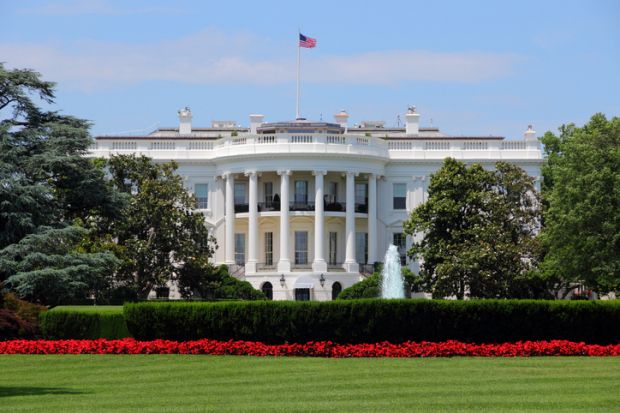For its third annual budget recommendation to Congress, the Trump administration has once again proposed deep funding cuts affecting college students and university researchers. Unlike the first two years, however, Congress now stands to have a lot more trouble pushing back.
That’s because a long-term congressional spending framework has now expired, just as US government deficits are climbing, leaving lawmakers with a far diminished ability to fund popular categories such as education, said Terry Hartle, senior vice-president for government and public affairs at the American Council on Education.
“Funding for our students and for the research that gets done on our campuses has done very well” the past two years, Dr Hartle said. But, he added, “I think we’ll be heading for a relatively big budget fight this year.”
The administration’s annual budget proposal, issued on 11 March, would cut US Department of Education funding by more than $8.5 billion (£6.4 billion), or 12 per cent. Details include a $2 billion cut for Pell Grants, the main federal subsidy for low-income university students, and more than $200 billion in cuts over 10 years from various student loan programmes.
The president’s budget outline also would cut $5 billion from the National Institutes of Health and $700 million from the National Science Foundation, the two leading funders of basic research on US university campuses.
Even as they recognised the highly unlikely prospect of Congress adopting cuts that severe, leading lawmakers and higher education advocates issued statements of vehement protest.
By putting forth such ideas, the administration is “threatening the well-being of our nation’s students and citizenry”, said Ted Mitchell, president of the ACE, the leading US higher education lobby group.
The administration’s plan “ignores the needs of America’s children and working families”, said Bobby Scott, a Democrat representative from Virginia who serves as chairman of the House Committee on Education and Labour.
Rhetoric aside, the nation’s overall budget constraints do make this year’s presidential suggestions appear more menacing. The threat looks even worse for higher education in comparison to the gains it got from the Republican-led Congress over the past two years.
In those two years, Dr Hartle recounted at ACE’s annual convention in Philadelphia, Congress approved major boosts to both student aid and research. The two-year increases included a $275 hike, to $6,195, in the maximum per-student Pell award; a $250 million jump – the biggest in 25 years – for work study and supplemental grants; gains of 10 per cent or more for Hispanic-serving and historically black colleges; and an additional $5 billion for the NIH, the biggest two-year increase in its history.
Asked during a briefing about the proposals for deep budget cuts, a Department of Education official said the president – who persuaded Congress to cut taxes by $1.5 trillion in 2017 – saw other areas as being more important than education.
The education cuts were “based on a desire to have some fiscal discipline and to address some higher priority needs for the administration around the federal government”, said the official, James Blew, the assistant secretary of education for planning, evaluation and policy development.

